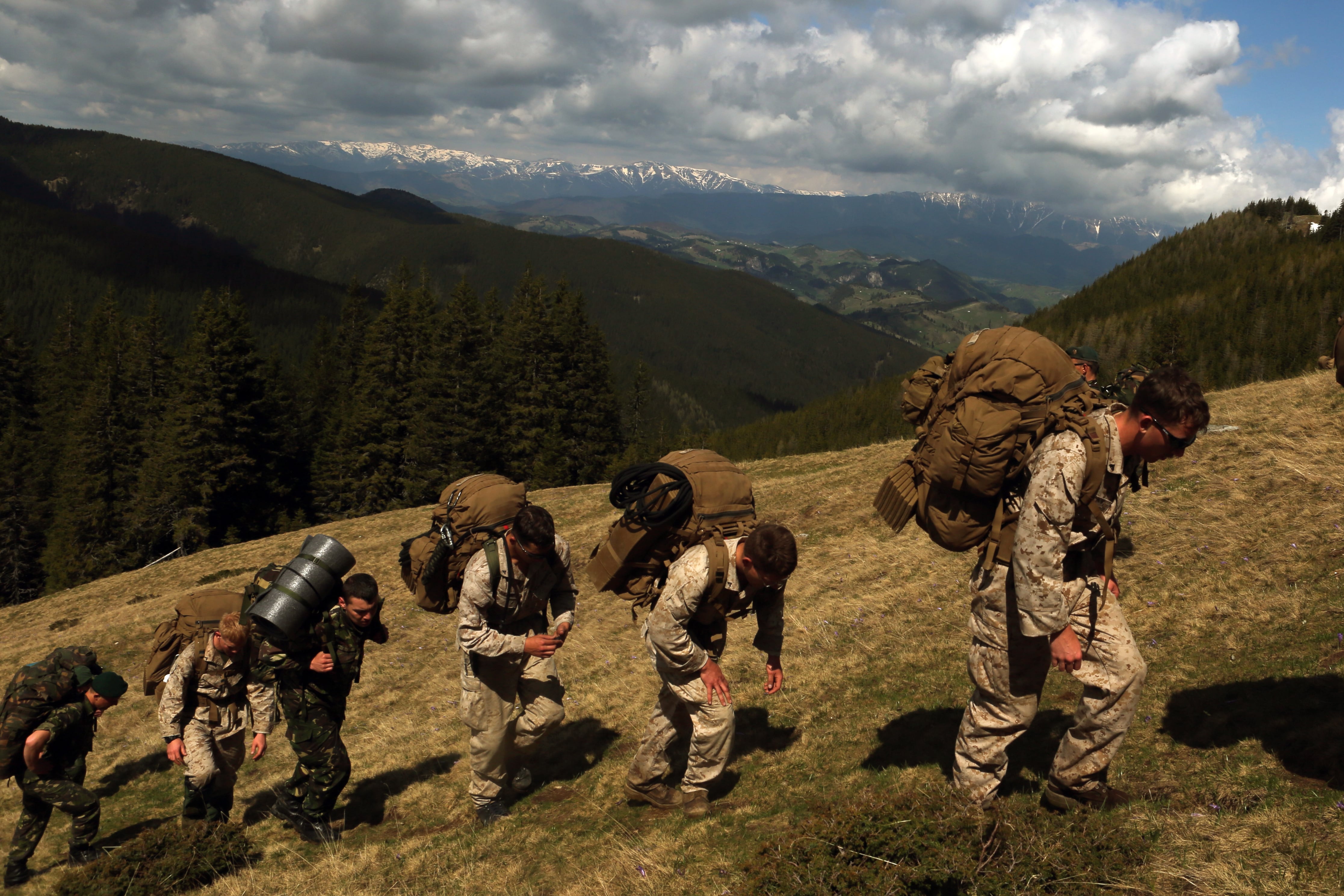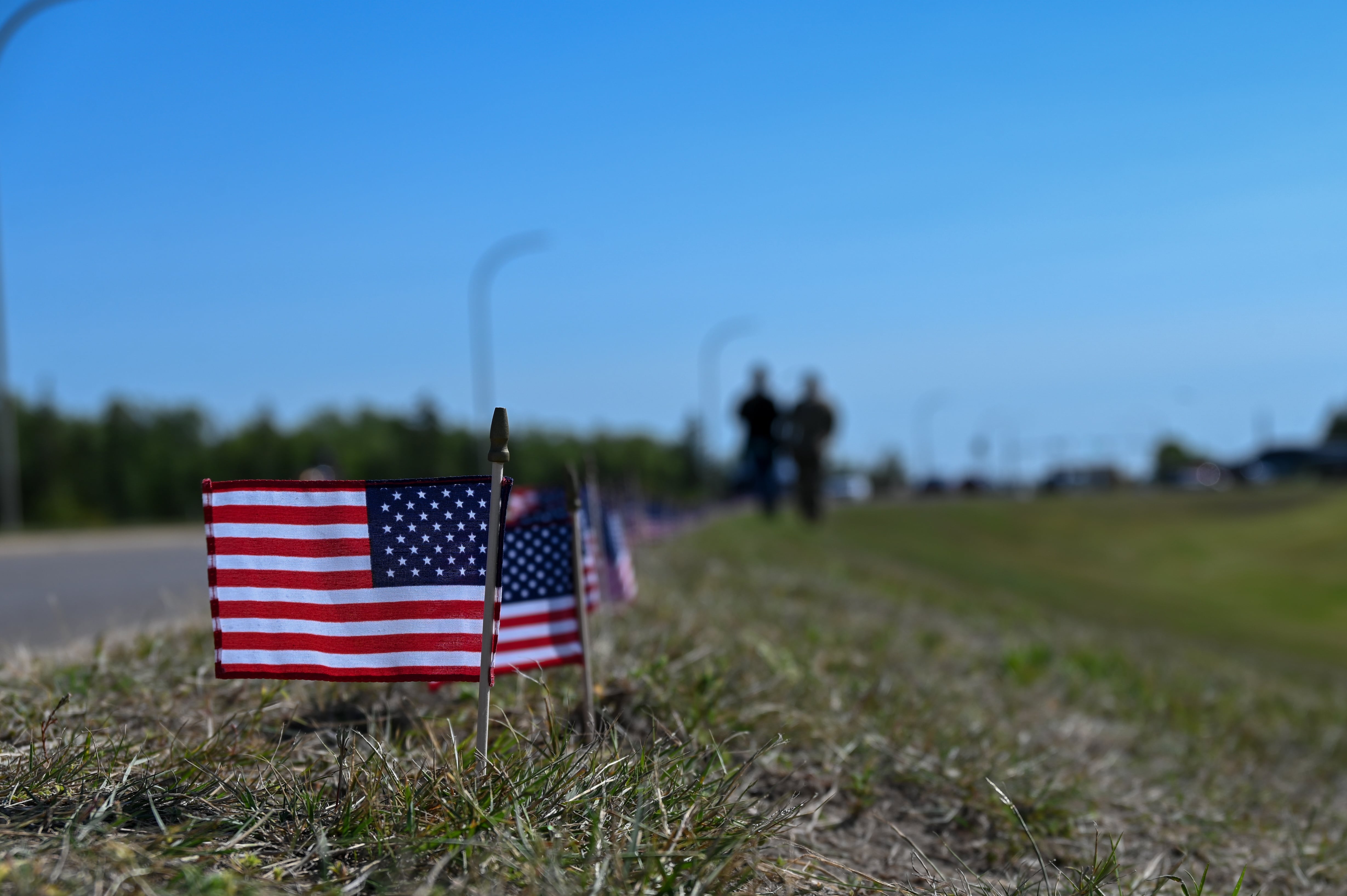The prospect of a near-peer fight against the Russian military in Eastern Europe is pushing the Marine Corps to shift more warfighting capability to its top-level Marine Expeditionary Force headquarters, a top Marine general said.
For years, the Corps thought it was unlikely to need to deploy a full Marine Expeditionary Force, which is the largest element of Marine combat power that can include more than 25,000 Marines. The MEF-level warfighting functions were not prioritized during years of smaller-scale operations and counterinsurgency missions that have typically required smaller units, such as a Marine Expeditionary Unit or Marine Expeditionary Brigade.
But Lt. Gen. Robert Hedelund, commanding general of North Carolina-based II Marine Expeditionary Force, said that Marine Corps leadership is moving some capabilities back to the MEF.
“The MEF command element will have to be ready to support a warfighting effort in Europe,” Hedelund told attendees at the National Defense Industrial Association’s annual Expeditionary Warfare Conference on Tuesday.
The Marine Corps has expanded its presence in Europe in recent years, including a Black Sea Rotational Force based in Romania and also back-to-back deployments to Norway, where Marines are prepositioning combat gear near the Russian border.
Hedelund said the MEF must remain nimble and continue to provide forces for the Special Purpose Marine Air-Ground Task Force and Marine Expeditionary Units to handle crisis response missions, such as hurricanes and artillery missions in Syria.
The three-star general showed the more than 100 conference attendees the far-flung nature of his East Coast-based command that has elements in Asia, Europe, Africa and South America.
Shifting back to warfighting at the MEF level has already included changing up some of how the MEF operates from intelligence to logistics and more.
Hedelund said the recent focus on information as a warfighting function, which has included the creation of the MEF Information Groups to replace the former MEF Headquarters Group, is a shift in how operations can be conducted.
He said summer training exercises at Twentynine Palms, California, teamed up Marines with British, Canadian and French forces to use information to shape the fight.
“What is the enemy doing? What do we want him to do? How do we get him to do it?” Hedelund said were the types of questions asked from the outset of the operation rather than after the fact.
In logistics, changes are needed to ensure that equipment is ready when needed. That will require cutting down choke points in delivering parts to aviation crews overseas and also re-evaluating the number of Marines needed to maintain the 7-ton truck fleet, which is more complex than its predecessor.
RELATED

For now, the Corps will continue to prepare and deploy for a range of missions.
But routinely deploying Marines around the world is taking a toll on readiness, Hedelund said.
“If there‘s a bullet flying anywhere on the planet, Marines want to be there,” he said. “However, if there is an event there isn’t a lot left in the barn.”
For example, Hedelund said Marines returning from deployment with the 24th MEU had to take over hurricane relief from members of the soon-to-deploy 26th MEU, which was preparing to leave in a few months.
At the same time, some Marines had to be pulled from a large-scale, international exercise held on the East Coast known as Bold Alligator to meet needs for some of the same hurricane relief in the Caribbean.
But the strains are not just on personnel who deploy frequently and see their deployment-to-dwell ratio fall below 1:2.
Ships need rest and refitting too.
“We’re going to pay that price on availability in the months to come,” Hedelund said, referring to ships sent to multiple hurricane response missions. “Those ships at sea were not scheduled to be at sea.”
“It’s what they need to do to support the country,” he said. “But there will be readiness challenges.”

Todd South has written about crime, courts, government and the military for multiple publications since 2004 and was named a 2014 Pulitzer finalist for a co-written project on witness intimidation. Todd is a Marine veteran of the Iraq War.





